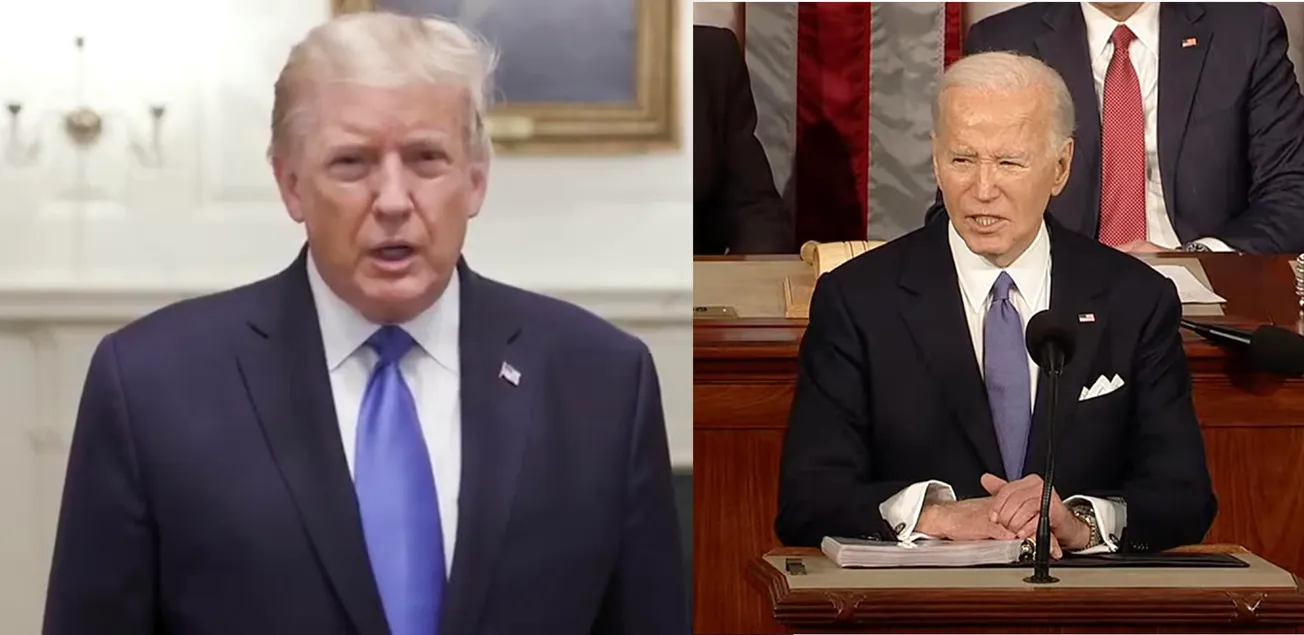This evening’s CNN presidential debate showed the glaring reality staring us all in the face today: The needed change to today’s existential crisis is not going to come from the political leadership in either of the two leading parties in the United States. Choose one that is “better” if you want, but only so long as you’re willing to risk the potential extinction of mankind for your preferred political “flavor.” The reality is that only a new idea, which challenges the disastrously failing ideologies of today’s trans-Atlantic world, can stand a chance of pulling us back from the brink of a threatened global war.
In Europe on Thursday, June 27, the war hawks doubled and tripled down at the EU Leaders Summit in Brussels on their head-first yet brain-last strategy of war with Russia. Ursula von der Leyen was again elected to serve as the European Commission President, and Kaja Kallas, the prime minister of Estonia, will become the EU’s next top diplomat, replacing Josep Borrell as the EU High Representative for Foreign Affairs. These elections, along with the earlier election of Dutch Prime Minister Mark Rutte to become the new NATO Secretary General, indicate a further tightening of Europe’s stance against Russia. All three are relentlessly committed to policies of war and suppression of internal dissent, with Kallas being a particularly notorious Russia-hater. Further, Ukraine signed a new security pact with the EU, which will “enshrine the commitment of all 27 Member States to provide Ukraine with extensive support, regardless of any internal institutional changes,” as Zelenskyy wrote on X. In other words, making the agreements so-called Trump-proof, or other potential dissident-proof.
This, while relations with Russia have gone off the deep end following the June 22-23 attacks on their early warning radar stations and last weekend’s cluster-bombing of a civilian beach in Crimea using American-made and American-guided missiles. Russian officials continue to warn of the disastrous consequences if these policies aren’t changed, with the most recent being Deputy Foreign Minister Sergey Ryabkov who warned that the situation is getting close to the “point of no return.”
But solutions do exist! What’s needed is the strength and potency to bring new ideas to the minds of those suffering under the weight of their failing old ones. Such has been Helga Zepp-LaRouche’s insistence that the largest problems in the world can be solved if the West decides to collaborate in partnership with the countries of Russia, China, the BRICS, and the emerging Global South. Symptomatic is China’s Chang’e 6 mission which returned to Earth on June 25, for the first time in human history bringing back lunar soil samples from the far side of the Moon. The deputy head of China’s National Space Administration emphasized June 27 that this mission, which he called a “journey of innovation,” was carried out with significant international collaboration, and the coming Chang’e-7 and Chang’e-8 missions intend to significantly expand such collaboration with partners around the world. In a similar fashion, on June 26 Russia announced the establishment of an international scientific and educational center for nuclear and related industries, which aims to train students from both Russia and internationally by the hundreds of thousands. Thus, science and technology can and are being harnessed as a method—both to develop economies and to develop collaborative relations among nations. Imagine how productive these ventures could become, if instead of wasting its economy in a mass-murderous military-industrial complex, the U.S. deployed a humanitarian-industrial complex toward these kinds of creative and productive endeavors. Far beyond a simple ceasefire to ongoing conflicts, this is the type of new architecture the world needs today.
Friday’s International Peace Coalition meeting on June 28 will take up the question of the next steps to build an international movement for peace. The world is moving at a rapid pace—Putin’s June 14 peace proposal continues to circulate, elections in France this weekend are likely to see explosive results, and the NATO summit will be taking place shortly thereafter on July 9-11. Therefore, become an organizer, and bring the world the leadership it so desperately needs.







